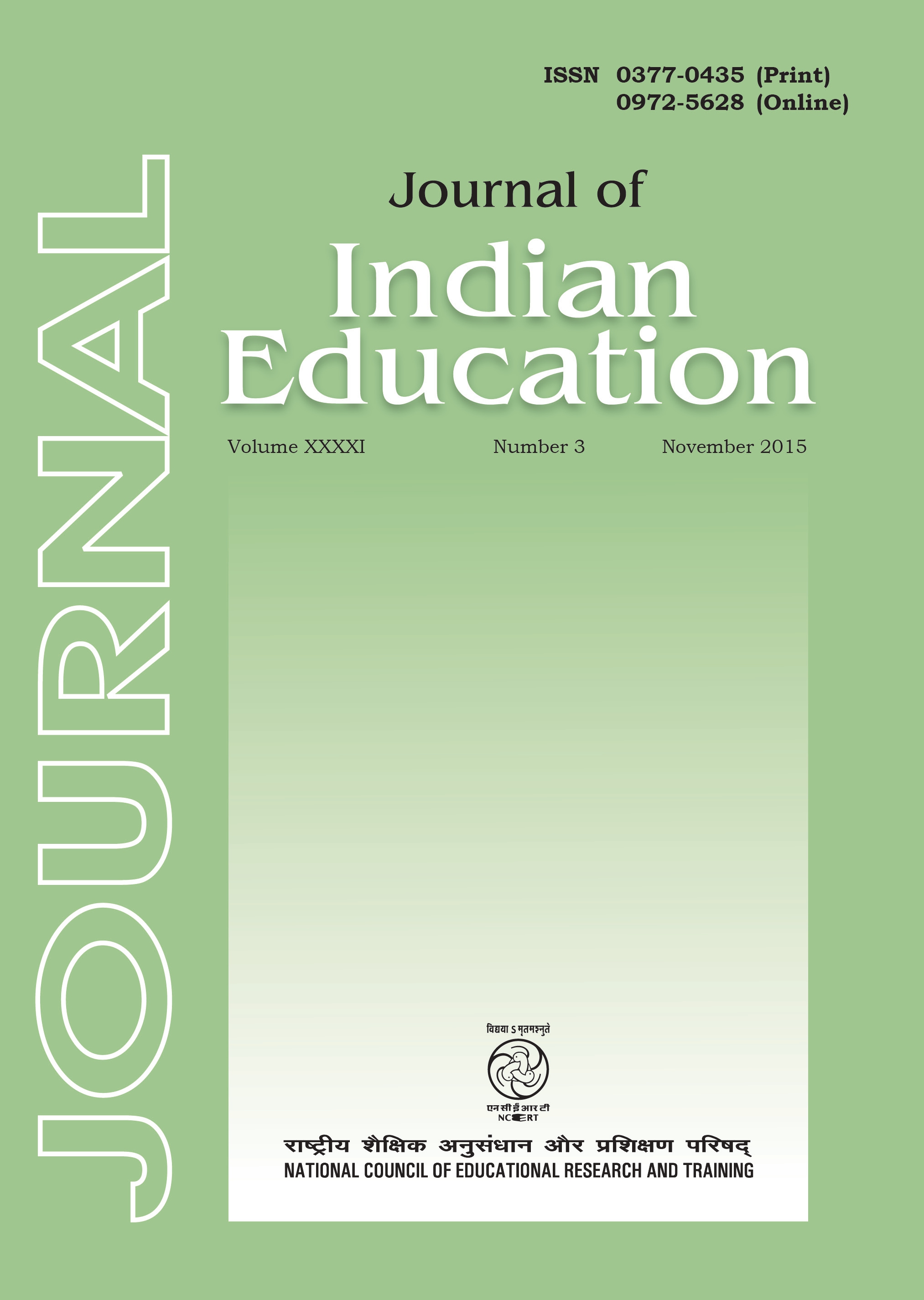A Reciprocal Model to Address Quality Issues in Education Insights from a Field Intervention Study on Marathi Language Learning Problems in the Classroom
Published 2015-11-30
Keywords
- Educational Research,
- Educational Quality
How to Cite
Abstract
Years of research in education indicates that the cornerstone of effective instruction in any classroom is the degree to which the classroom setting engages all learners in actively constructing knowledge. Effective language instruction takes place in classrooms in which students have frequent and consistent opportunities to read, write, listen, and talk. Further, a pedagogy that brings about learner autonomy is recommended. Indeed, pedagogy is an aspect of education affected by the teachers’ skills and attitudes. Therefore, while addressing issues of quality in education as manifested by student achievement, both teacher effects and student factors need to be taken into consideration. The present paper describes insights from a field intervention program for language learning problems in Marathi. This program was implemented by regular classroom teachers, thus addressing the problems of low achievement, poor pedagogy, and lack of resources for individual intervention for learning problems. Teachers were trained for its implementation, and changes in their teaching methodology and teacherchild interactions were evaluated. The program was tested on 120 children.

